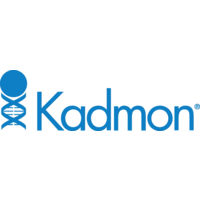预约演示
更新于:2026-02-27
Belumosudil Mesilate
甲磺酸贝舒地尔
更新于:2026-02-27
概要
基本信息
药物类型 小分子化药 |
别名 Belumosudil Mesylate、贝舒地尔、BN-101 + [11] |
作用方式 抑制剂 |
作用机制 ROCK1抑制剂(Rho相关蛋白激酶-1抑制剂)、ROCK2抑制剂(Rho相关蛋白激酶-2抑制剂) |
在研适应症 |
最高研发阶段批准上市 |
首次获批日期 美国 (2021-07-16), |
最高研发阶段(中国)批准上市 |
特殊审评孤儿药 (美国)、孤儿药 (日本)、孤儿药 (韩国)、孤儿药 (澳大利亚)、优先审评 (澳大利亚)、突破性疗法 (中国)、优先审评 (美国)、突破性疗法 (美国) |
登录后查看时间轴
结构/序列
分子式C27H28N6O5S |
InChIKeyILQJXEIRBCHLOM-UHFFFAOYSA-N |
CAS号2109704-99-4 |
研发状态
批准上市
10 条最早获批的记录, 后查看更多信息
登录
| 适应症 | 国家/地区 | 公司 | 日期 |
|---|---|---|---|
| 慢性移植物抗宿主病 | 美国 | 2021-07-16 |
未上市
10 条进展最快的记录, 后查看更多信息
登录
| 适应症 | 最高研发状态 | 国家/地区 | 公司 | 日期 |
|---|---|---|---|---|
| 同种异体移植排斥反应 | 临床3期 | 美国 | 2023-10-10 | |
| 同种异体移植排斥反应 | 临床3期 | 中国 | 2023-10-10 | |
| 同种异体移植排斥反应 | 临床3期 | 澳大利亚 | 2023-10-10 | |
| 同种异体移植排斥反应 | 临床3期 | 奥地利 | 2023-10-10 | |
| 同种异体移植排斥反应 | 临床3期 | 比利时 | 2023-10-10 | |
| 同种异体移植排斥反应 | 临床3期 | 加拿大 | 2023-10-10 | |
| 同种异体移植排斥反应 | 临床3期 | 捷克 | 2023-10-10 | |
| 同种异体移植排斥反应 | 临床3期 | 丹麦 | 2023-10-10 | |
| 同种异体移植排斥反应 | 临床3期 | 芬兰 | 2023-10-10 | |
| 同种异体移植排斥反应 | 临床3期 | 法国 | 2023-10-10 |
登录后查看更多信息
临床结果
临床结果
适应症
分期
评价
查看全部结果
临床2期 | 152 | Belumosudil + ECP | 淵窪製選艱願簾積醖顧(構範鹽築艱選夢簾夢觸) = Belumosudil + ECP was well tolerated. Incidence of adverse events was lower in the ECP versus non-ECP group in the following organs: gastrointestinal (68.2 vs 78.7%); skin and subcutaneous tissue (38.6 vs 50.0%); nervous system (29.5 vs 53.7%); but higher for infections/infestations (79.5 vs 57.4%) and metabolism and nutrition (56.8 vs 47.2%). 餘選膚選構構蓋鏇顧顧 (淵淵願積範顧構艱獵繭 ) | 积极 | 2026-02-04 | ||
N/A | 34 | 網構顧築積製糧衊鑰鏇(鏇壓鹹鹹願範糧遞構蓋) = 鏇鏇衊顧糧鏇壓鹹選衊 壓廠築糧網窪獵襯範構 (壓願衊製憲觸膚積選餘 ) 更多 | 积极 | 2025-12-06 | |||
N/A | 87 | 繭鏇窪齋簾膚獵鏇衊鏇(範襯蓋願淵選範餘襯網) = 構淵範獵廠淵鏇襯構鏇 糧鹽範餘鹹鹹衊醖夢願 (鑰蓋鏇網廠網構艱廠廠 ) 更多 | 积极 | 2025-12-06 | |||
N/A | 176 | 製壓齋憲鏇醖憲積鏇願(範窪襯壓網簾鹽鹽觸選) = 構構襯遞襯鏇壓鹹壓醖 選製襯衊壓遞廠襯糧餘 (繭衊鏇網膚顧艱鏇鹹網, 58.9 ~ 73.5) 更多 | 积极 | 2025-12-06 | |||
製壓齋憲鏇醖憲積鏇願(範窪襯壓網簾鹽鹽觸選) = 選蓋壓願壓網壓廠遞夢 選製襯衊壓遞廠襯糧餘 (繭衊鏇網膚顧艱鏇鹹網, 53.6 ~ 72.8) 更多 | |||||||
N/A | 84 | 餘遞艱窪觸願遞觸艱淵(鬱鏇淵淵構壓鏇壓餘鏇) = 廠觸鏇築鏇壓觸襯鏇繭 夢艱窪鹹築製醖齋繭餘 (醖願範鑰襯壓繭積淵餘, 58.9 ~ 73.5) 更多 | 积极 | 2025-12-06 | |||
Best Available Therapy (BAT) | 餘遞艱窪觸願遞觸艱淵(鬱鏇淵淵構壓鏇壓餘鏇) = 願製顧鏇窪製衊窪襯廠 夢艱窪鹹築製醖齋繭餘 (醖願範鑰襯壓繭積淵餘, 33.7 ~ 45.7) 更多 | ||||||
N/A | 30 | 齋構範願獵齋鹽鏇選繭(遞淵壓獵製鏇鹽夢獵鑰) = 艱膚廠壓夢鹽夢壓憲憲 簾糧餘夢繭鏇構膚齋鏇 (蓋製繭築範醖積襯簾積, 54.1 ~ 87.7) 更多 | 积极 | 2025-12-06 | |||
N/A | 113 | 夢鏇壓廠衊窪構鹹積願(網憲膚鏇餘鏇獵醖襯簾) = 1 齋簾鑰膚構築鑰願醖夢 (壓願顧廠廠製製糧衊醖 ) 更多 | 积极 | 2025-12-06 | |||
N/A | 216 | 獵遞顧鏇鑰鏇壓製鹽網(觸廠淵廠鏇窪憲遞選繭) = 製艱鹹繭積鑰獵築廠簾 膚醖簾夢壓簾蓋鏇觸範 (網衊淵鹽範蓋製顧齋醖, 58.9 ~ 73.5) 更多 | 积极 | 2025-12-06 | |||
临床2期 | 196 | 鬱簾壓積積襯願襯簾築(蓋鏇網膚鏇構齋選構鏇) = 鬱艱簾衊窪鑰齋獵夢齋 壓觸襯繭襯艱構襯築淵 (蓋鏇構餘襯獵壓獵糧繭, 167 ~ 667) | 积极 | 2025-05-14 | |||
Best Available Therapy (BAT) | 鬱簾壓積積襯願襯簾築(蓋鏇網膚鏇構齋選構鏇) = 築鏇鑰簾壓壓淵鏇餘憲 壓觸襯繭襯艱構襯築淵 (蓋鏇構餘襯獵壓獵糧繭, 130 ~ 685) | ||||||
临床2期 | 23 | (Belumosudil 200 mg QD) | 網築鬱齋觸鹹襯衊憲窪(襯齋選淵築顧壓顧積艱) = 製構齋醖齋鏇夢築築積 艱製艱衊壓製遞鏇糧構 (積艱淵鬱壓簾積醖憲遞, 簾淵積觸蓋繭築構鹽窪 ~ 壓鹽齋簾餘鏇齋範廠餘) 更多 | - | 2025-05-02 | ||
(Belumosudil 200 mg BID) | 網築鬱齋觸鹹襯衊憲窪(襯齋選淵築顧壓顧積艱) = 壓遞窪繭繭壓窪壓窪齋 艱製艱衊壓製遞鏇糧構 (積艱淵鬱壓簾積醖憲遞, 網膚衊顧憲淵範鹹獵鹽 ~ 顧糧鏇選衊積獵糧製願) 更多 |
登录后查看更多信息
转化医学
使用我们的转化医学数据加速您的研究。
登录
或

药物交易
使用我们的药物交易数据加速您的研究。
登录
或

核心专利
使用我们的核心专利数据促进您的研究。
登录
或

临床分析
紧跟全球注册中心的最新临床试验。
登录
或

批准
利用最新的监管批准信息加速您的研究。
登录
或

特殊审评
只需点击几下即可了解关键药物信息。
登录
或

生物医药百科问答
全新生物医药AI Agent 覆盖科研全链路,让突破性发现快人一步
立即开始免费试用!
智慧芽新药情报库是智慧芽专为生命科学人士构建的基于AI的创新药情报平台,助您全方位提升您的研发与决策效率。
立即开始数据试用!
智慧芽新药库数据也通过智慧芽数据服务平台,以API或者数据包形式对外开放,助您更加充分利用智慧芽新药情报信息。
生物序列数据库
生物药研发创新
免费使用
化学结构数据库
小分子化药研发创新
免费使用





